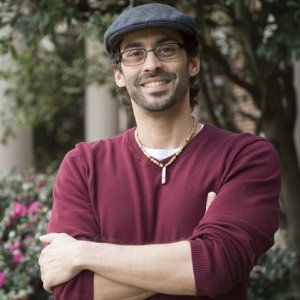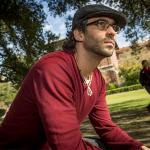Stephen Ostertag
Assistant Professor of Sociology

Areas of Expertise
Biography
My current research is a multi-method longitudinal study examining the growth of a post-hurricane Katrina blogosphere in New Orleans and its impact on city-wide civil and political institutions. With my colleague David G. Ortiz, I examine why a number of residents started blogging, the networks, shared identities and sense of community that developed among them, and the on and offline interactions, associations, and collective actions these bloggers took part in as they seek to influence city-wide policy making and institutions. This research will help scholars better understand questions about the relationships among digital media, collective action and civil/political society, as they develop overtime and through a variety of indirect channels.
Education
University of Connecticut
University of Connecticut
Central Connecticut State University
Accomplishments
The Barbara E. Moely Service Teaching Learning Award
2015
for my criminology course with the Orleans Public Defenders
James W. Carey Urban Communication Award
2010
issued by the International Communication Association ($1,000)
Articles
Victimization of Children Left Behind in Rural China
Examine the relationship between parental rural-to-urban migration, caretaking arrangement, and left-behind children’s self-reported victimization in rural China. The direct effect of parental migration on children’s victimization as well as the indirect effect through positive caretaking and children’s delinquent/problem behavior involvement is explored.
Can Social Media Use Produce Enduring Social Ties? Affordances and the Case of Katrina Bloggers
Can previously unacquainted, grieving individuals who use social media to organize and participate in decentralized mobilizations build strong, lasting social ties? If so, how? What is it about particular social media technologies and platforms that might explain the strength and longevity of their social ties? Drawing on a case study of New Orleans bloggers who took part in a variety of contentious and non-contentious mobilizations after hurricane Katrina, we find that people who mobilize through social media like blogs can form strong and lasting social ties. We argue that this is partly because of the types of communication and interaction that blogs afford. We identify two types of affordances, mechanical and cultural, as distinct qualities of social media like blogs, and illustrate how they enable the building of strong, digitally mediated social ties among grieving people.
A critical strong program: Cultural power and racialized civil exclusion
Cultural sociology’s strong program along with civil sphere theory has the potential to reveal new and insightful ways of understanding and explaining various social inequalities. We use this paper to offer one model of how such a project might look. Drawing on the intersections of media, crime, race, and the U.S. Criminal Justice System, we identify the mechanisms and processes of racialized civil exclusion in the post-Civil Rights era of mass incarceration. In so doing we seek to make two contributions to existing literature. First, we complement popular political process and multi-institutional approaches to social inequalities by providing a model of civil exclusion that is both parsimonious and expansive. Second, we illustrate how cultural sociology’s strong program and civil sphere theory may be used to engage the critical scholarship on race by identifying racialized civil exclusion as a distinct aspect of contemporary racism. We conclude with suggestions on how scholars and activists alike might use cultural sociology’s strong program to inform processes of racialized civil inclusion and investigate other entrenched inequalities.
“Katrina Bloggers Activate!”: The Long‐Term Effects of Digital Media on Civic Participation†
There is a lively debate on the relationship between digital media and civic participation. Some scholars argue that digital media adversely affect civic participation, others that the effect of digital media on civic participation is negligible, and still others claim that digital media strengthens civic participation. Yet, most of this research is based on cross‐sectional methodologies, treats digital media as a uniform entity, and overlooks new civic formations that better resonate with current social and technological environments. We address these criticisms with a retrospective case study of blogging in the wake of hurricane Katrina. Through in‐depth interviews, supplemental survey data, analysis of blog posts, and field notes, we show how a number of New Orleans’ residents used blogs to organize and take part in a variety of civic actions in the months and years after hurricane Katrina. We discuss the implications of these findings for current debates on the relationship between digital media and civic participation.
Katrina Bloggers and the Development of Collective Civic Action: The Web as a Virtual Mobilizing Structure
Scholarship on collective civic action helps link collective-level contentious actions and individual-level civic engagement. Using longitudinal data from a group of New Orleans residents who started blogging in the wake of hurricane Katrina, we highlight the digitally mediated social processes linking individual civic engagement with collective civic actions. Through a developmental approach, we analyze the progression from individual blogging to the creation of social networks, the formation of a community of “Katrina bloggers,” and their engagement on a range of offline collective civic actions. We argue that the Web serves as a “virtual” mobilizing structure, enabling individuals with shared concerns to organize across time and space, without the need of copresence or preexisting formal ties, networks, or organizations. Our analysis provides insights into the development of virtual communities and social movements formed around collective identities and processes of collective efficacy that highlight the dynamics of contention in civil society.

